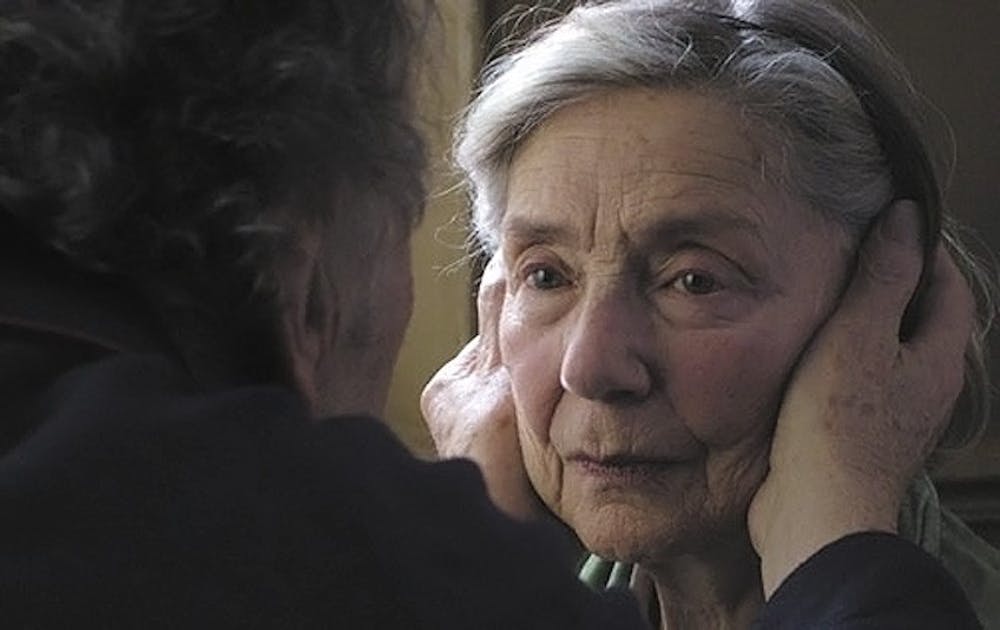Widely acclaimed Amour focuses on the life of an elderly couple, Anne (Emmanuelle Riva) and Georges (Jean-Louis Tritignant), after Anne suffers a stroke and the right side of her body is paralyzed. Through Anne’s mental and physical deterioration and, most importantly, Georges’ gentleness in dealing with their situation, the movie tackles the question of how to live the latest stages of life with dignity and with love.
At instances the film is extremely touching. Most remarkable is how comfortable Anne and Georges are with each other as a couple. They express this comfort not through laid-back familiarity but through genuine politeness.
However, the film is at times disturbing. The audience is a witness to Anne’s nuanced, progressive deterioration and to her deep sense of embarrassment at losing her autonomy. She gradually shuts herself away from other people, but we remain, seeing her wet her bed and unable to shower without help. We develop an almost hollow level of intimacy with Anne, knowing her experiences factually but not viscerally. Perhaps most frightening is how difficult Anne’s life becomes despite financial, social and emotional stability.
Though we feel estranged from Anne because of her health condition, Georges’ character produces a different sense of estrangement. After Anne’s surgery, Georges promises that he will never send her back to the hospital. He is the one who takes care of Anne, and does so not out of a sense of obligation or even empathy, but out of love. It would have been easy to make Georges an absolutely devoted yet absolutely unbelievable character, or to have him become overwhelmed by the situation. Instead, Haneke includes instances of suffocation and frustration, which at no point diminish the genuine sense of care that George’s character embodies.
The movie opens with an unusual shot showing the audience at a concert rather than the musician, creating an unsettling mirror image of the movie theater. Aside from this initial scene, the film is shot entirely in the couple’s beautiful Parisian apartment, creating a distinct sense of entrapment. The flat has wooden floors, old furniture (velvety chairs!), high ceilings and unusually long windows with silky white drapes. We become well acquainted with its geography, knowing how each room connects with the rest. In addition to this localized setting, there is a deliberate use of silence, which blankets the apartment and its inhabitants and deepens our feeling of enclosure.
The movie is slow—my French friend would not come to see it with me after seeing the trailer because it seemed “too French”—and, yes, there is some smoking, staring into space, and unnecessary drama (one side plot included a suicidal love-triangle). The pace, however, in addition to being characteristically French (read: very slow), effectively delves into Amour’s central themes. While it raises grandiose questions of love and death, Amour’s well-measured acting and directing avoid what could have become an overbearing viewing experience. The film is subtle enough as to feel almost unprocessed.
Get The Chronicle straight to your inbox
Signup for our weekly newsletter. Cancel at any time.

